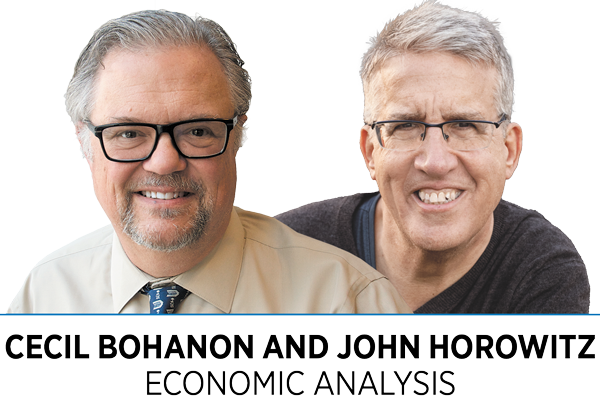Subscriber Benefit
As a subscriber you can listen to articles at work, in the car, or while you work out. Subscribe Now Recently, three university professors surveyed 223 faculty members around the country regarding their views on grade inflation and declining academic standards in higher education. The title of their article is “‘Undeserved’ grades or ‘underserved’ students?”
Recently, three university professors surveyed 223 faculty members around the country regarding their views on grade inflation and declining academic standards in higher education. The title of their article is “‘Undeserved’ grades or ‘underserved’ students?”
Of those surveyed, 45% taught English, 29% taught mathematics, and 25% taught sociology. When asked if “grade inflation is a serious problem in higher education,” 48% agreed and 21% disagreed. When asked if “academic standards have declined in recent years,” 47% agreed and 27% disagreed. When asked if “some functionally illiterate students are graduating,” 40% agreed and 47% disagreed. When asked if “encouraging a four-year degree plays a role in eroding standards,” 49% agreed and 31% disagreed. This last question speaks to the impact of numerous state-policy efforts to increase university graduation rates through financial rewards and penalties to universities. Do such policies lead universities to award degrees to marginally performing students?
Answers varied among the three disciplines. When asked if “encouraging a four-year degree plays a role in eroding standards,” 65% of math professors agreed and 13% disagreed. Likewise, 55% of sociology professors agreed and 27% disagreed. On the other hand, only 35% of English professors agreed, compared with 45% who disagreed. A similar pattern emerged with a question asking if “academic standards have declined in recent years.” Math professors agreed 59% to 16%, sociology, 48% to 13%; and English, 42% to 38%.
The survey also asked the participants to identify their political orientation. Twelve percent identified as radical left, 61% as liberal, 21% as moderate, 4% as conservative and 2% as libertarian. The authors report that political orientation was the “best predictor of where faculty stand on these delicate issues.”
When asked if “grade inflation is a serious problem in higher education,” 50% of moderates agreed and 13% disagreed; liberals agreed 49% to 22%; and radicals split evenly, 31% to 31%. When asked if “academic standards have declined in recent years,” moderates agreed 65% to 15%, liberals agreed 40% to 32%, and radicals agreed 35% to 31%. When asked if “encouraging a four-year degree plays a role in eroding standards,” moderates agreed 67% to 17%, liberals agreed 44% to 34%, and self-identified radicals disagreed 54% to 31%.
Although political orientation seems to be a significant part of teachers’ perspectives on standards in higher education, we leave it to the reader to decide what the effect of state graduation incentives are, and whether standards in higher education are eroding, and, if so, why.•
__________
Bohanon and Horowitz are professors of economics at Ball State University. Send comments to [email protected].
Please enable JavaScript to view this content.
